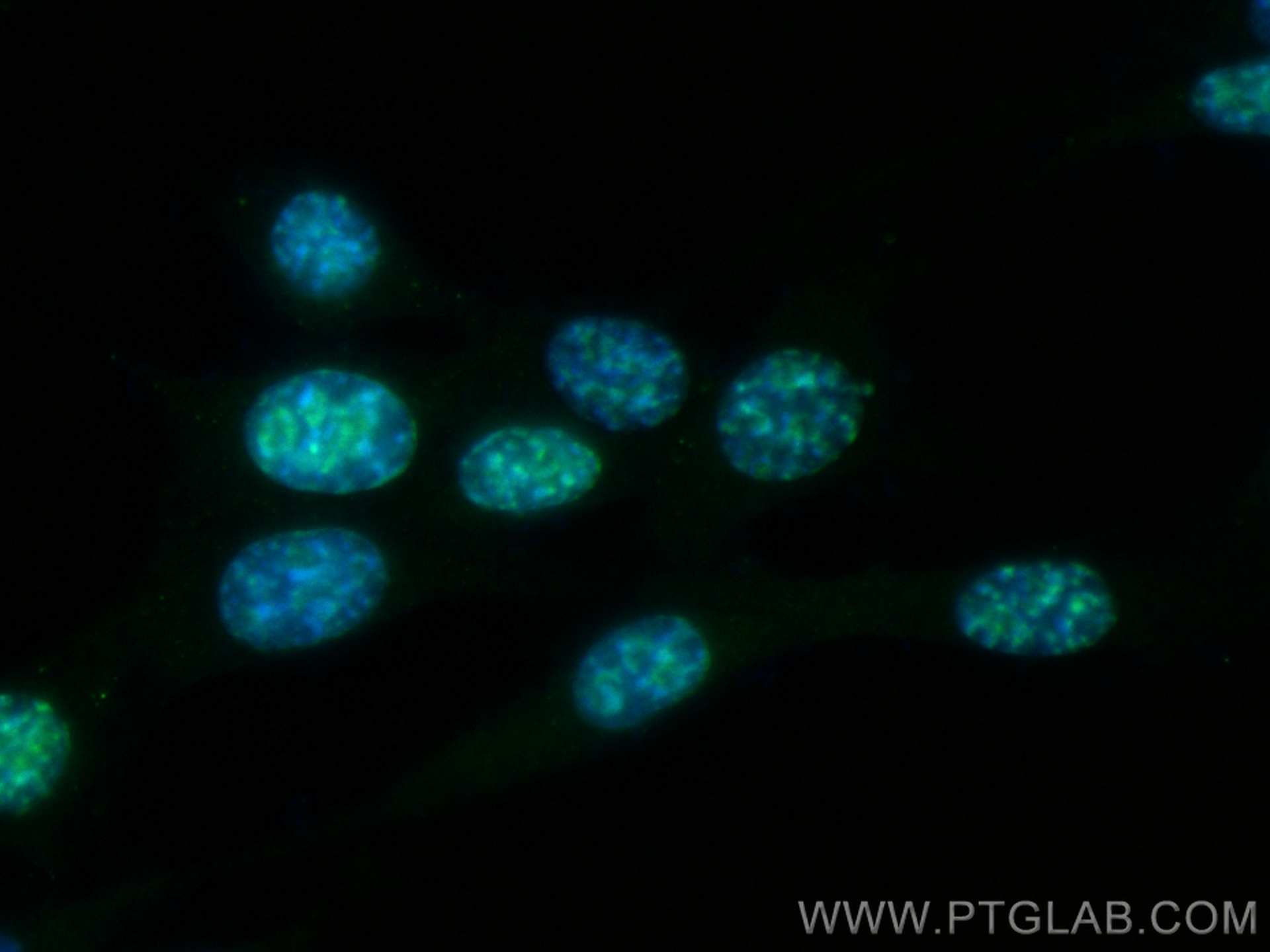验证数据展示
经过测试的应用
| Positive IF/ICC detected in | NIH/3T3 cells |
推荐稀释比
| 应用 | 推荐稀释比 |
|---|---|
| Immunofluorescence (IF)/ICC | IF/ICC : 1:50-1:500 |
| It is recommended that this reagent should be titrated in each testing system to obtain optimal results. | |
| Sample-dependent, Check data in validation data gallery. | |
产品信息
CL488-84432 targets Ki-67 in IF/ICC applications and shows reactivity with mouse, rat samples.
| 经测试应用 | IF/ICC Application Description |
| 经测试反应性 | mouse, rat |
| 免疫原 | Recombinant protein 种属同源性预测 |
| 宿主/亚型 | Rabbit / IgG |
| 抗体类别 | Recombinant |
| 产品类型 | Antibody |
| 全称 | antigen identified by monoclonal antibody Ki 67 |
| 别名 | Mki67, Ki67, Ki 67, Proliferation related Ki 67 antigen, 241768E2 |
| 计算分子量 | 351kDa |
| 观测分子量 | 350 kDa |
| GenBank蛋白编号 | NM_001081117.2 |
| 基因名称 | ki67 |
| Gene ID (NCBI) | 17345 |
| 偶联类型 | CoraLite® Plus 488 Fluorescent Dye |
| 最大激发/发射波长 | 493 nm / 522 nm |
| 形式 | Liquid |
| 纯化方式 | Protein A purification |
| UNIPROT ID | E9PVX6-1 |
| 储存缓冲液 | PBS with 50% Glycerol, 0.05% Proclin300, 0.5% BSA, pH 7.3. |
| 储存条件 | Store at -20°C. Avoid exposure to light. Stable for one year after shipment. Aliquoting is unnecessary for -20oC storage. |
背景介绍
The Ki-67 protein (also known as MKI67) is a cellular marker for proliferation. Ki67 is present during all active phases of the cell cycle (G1, S, G2 and M), but is absent in resting cells (G0). Cellular content of Ki-67 protein markedly increases during cell progression through S phase of the cell cycle. Therefore, the nuclear expression of Ki67 can be evaluated to assess tumor proliferation by immunohistochemistry.
实验方案
| Product Specific Protocols | |
|---|---|
| IF protocol for CL Plus 488 Ki-67 antibody CL488-84432 | Download protocol |
| Standard Protocols | |
|---|---|
| Click here to view our Standard Protocols |
